News
Thailand Under Pressure After Death Of Uyghur Asylum-Seeker ‘Aziz Abdullah’
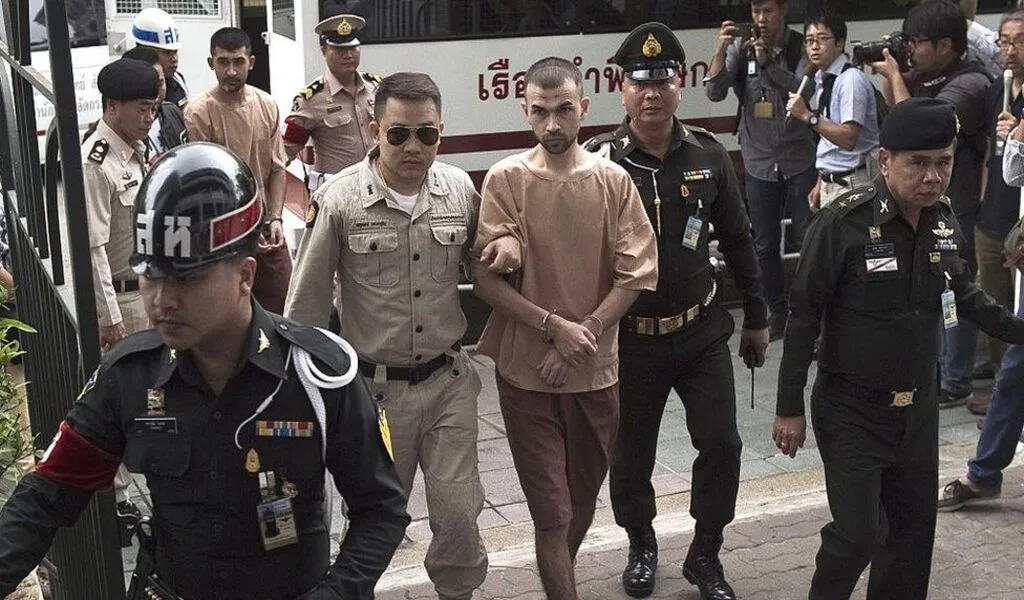
(CTN NEWS) – BANGKOK – The death of a 49-year-old Uyghur asylum seeker Aziz Abdullah in Thailand has spurred rights organizations to call for the release of 50 Uyghur men detained for nine years.
Aziz Abdullah passed away in Bangkok’s Immigration Detention Center after collapsing there.
He was one of around 350 Uyghur asylum seekers who left western China’s Xinjiang region in 2013 and were imprisoned in Thailand.
Human rights organizations estimate that over a million individuals have recently been detained in a large network of detention facilities in Xinjiang, where China has been accused of committing crimes against humanity against Uyghur Muslims and other minorities.
China, which refers to them as “re-education camps,” refutes abuse claims.
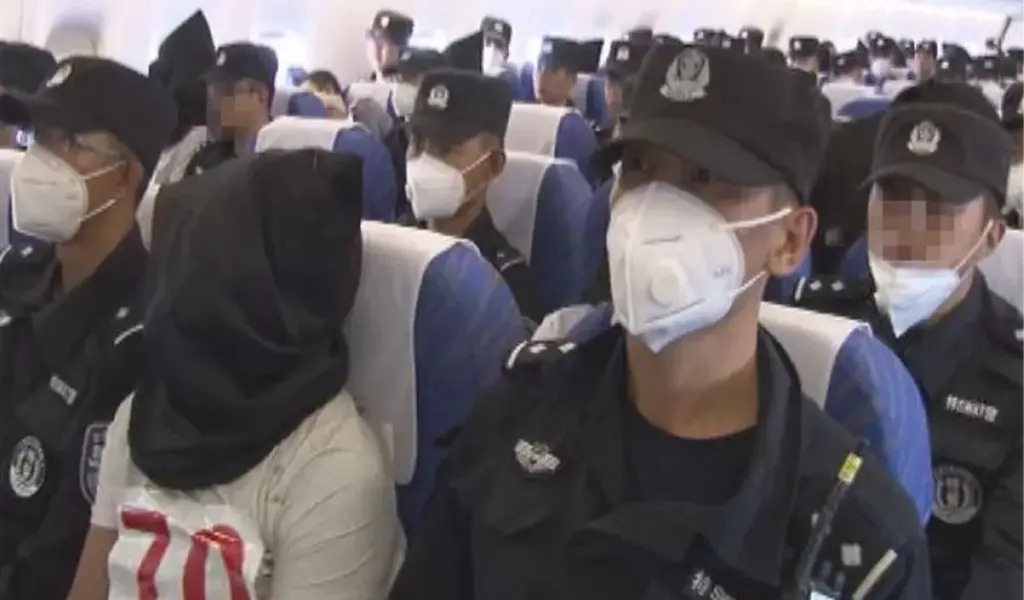
Thailand decided to repatriate 109 Uyghurs to China in 2015, despite pleas from the UN/ CCTV
Aziz Abdullah Traveled To Thailand In 2013
Aziz Abdullah, a farmer from a remote area of southwestern Xinjiang, traveled to Thailand in the latter part of 2013 with his wife, who was expecting his brother and seven kids.
He had been extremely unwell for more than three weeks, according to activists in contact with detainees at the Immigration Detention Center, but the Thai authorities refused to bring him to the hospital until he passed off.
Polat Sayim, the World Uyghur Congress‘s director in Australia, said, “He was coughing and vomiting blood – he could not eat.”
A doctor evaluated him at the IDC and declared that his condition was normal and that no real illness was present.
After ultimately collapsing, he was transported to the hospital but was quickly declared dead. Lung infection is listed as the cause of death on the hospital’s death certificate.
Activists claim that when his party was stopped in southern Thailand, they attempted to travel to Malaysia and Turkey.
Most Uyghurs at the time pretended to be Turkish to avoid being sent back to China, and Turkey was granting some of them citizenship. Early in July 2015, the Thai government authorized the flight to Turkey for 173 of them, including the wife and kids of Aziz Abdullah.
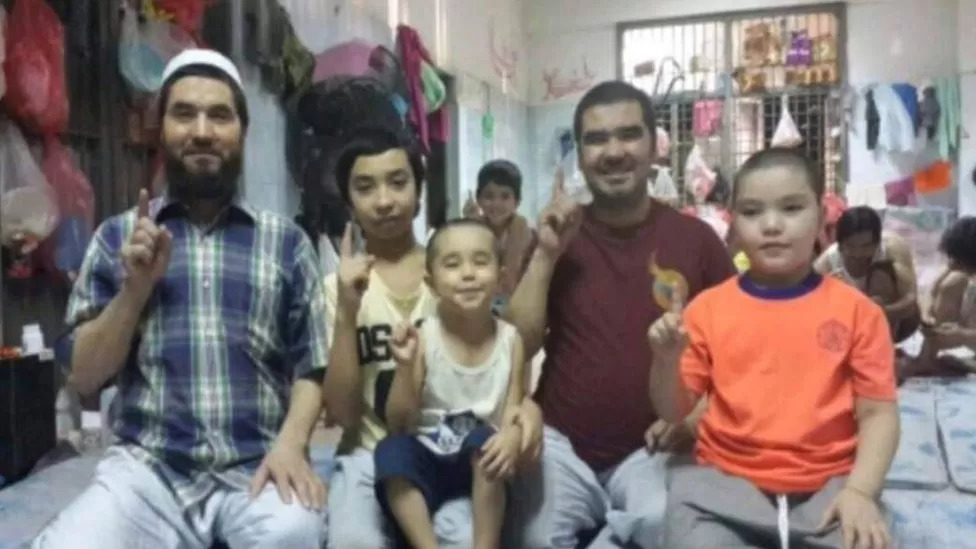
Aziz Abdullah (right) and family before they fled to Thailand/ COURTESY ABDULLAH FAMILY
Chinese Tourists Attack Bangkok
China, however, reacted vehemently to this and charged Turkey with “conniving in illegal immigration activities” and intervening in a bilateral matter.
The Thai government also permitted Chinese embassy representatives to visit and evaluate asylum seekers.
However, on July 8, 2015, against the UNHCR‘s and other governments’ requests, Thailand forcibly repatriated at least 109 Uyghur men, placing them on a plane and sending them back to China while handcuffed and hooded.
They included the brother of Aziz Abdullah.
Chinese state media labeled them as members of gangs that smuggle people, with some of them being charged with terrorist activity. After the men arrived in China, little is known about what happened to them.
The Thai government defended its choice by claiming that although the Chinese had requested that all Uyghurs be brought home, only a small number had been sent.
A potent bomb detonated six weeks later at a shrine in the heart of Bangkok that was well-liked by Chinese tourists, killing 20 people and injuring many more.
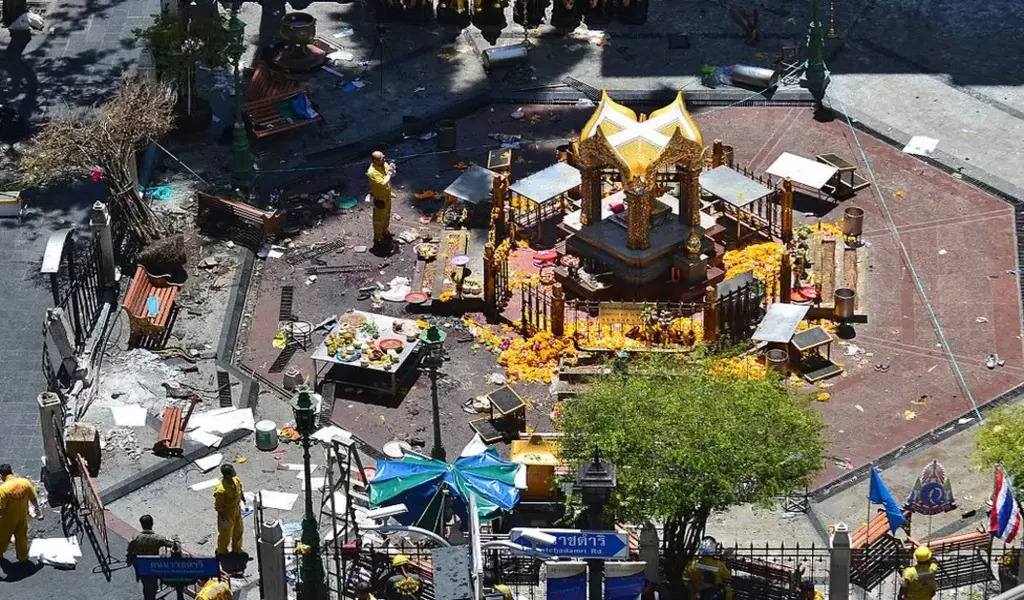
The attack on the Erawan shrine killed 20 people/ GETTY IMAGES
The Thai authorities stated that it resulted from competition between people-smuggling organizations, but further evidence pointed to Uyghur terrorist groups as the most likely culprits.
While one of the two Uyghur men, who says he is innocent, was detained and charged with the explosion, it’s possible that he was simply another asylum seeker apprehended by Thai police during a raid on a home they believed to have been used by the bomb-makers.
Their trial has been delayed for eight years after their arrest; the Thai government appears unmotivated to complete it, and the two men are still being held without charge.
The remaining 50 or so Uyghur detainees were formerly housed in detention facilities spread throughout Thailand, but after three of them tried to flee, they were all transferred to Bangkok’s notoriously jam-packed Immigration Detention Center.
Aziz Abdullah, an Uyghur asylum-seeker died after he collapsed in the Immigration Detention Centre in Thailand, where he was held for 9 years. Rights group says the conditions in the IDC are “even worse than regular Thai prisons”. Story by @pakhead https://t.co/Y5D1Cc1cgj
— Ryn J. (@Ryn_writes) February 21, 2023
The Uyghurs are kept apart from one another and have little interaction with the outside world, according to campaigners working to help them.
According to Chalida Tacharoensuk of the People’s Empowerment Foundation, which has pushed for improved treatment of the Uyghurs, “it is far worse than conventional Thai prisons.”
It’s quite crowded. Food is scarce, and the food that is offered is unhealthy. For Muslim prisoners, there is no halal food available. They must drink tap water, which isn’t particularly clean.
Very little healthcare is available. They only receive painkillers or other comparable medications if they become ill.
“This tragedy is a completely expected effect of a Thai policy choice to lock away these Uyghurs and, essentially, toss away the key,” said Phil Robertson of Human Rights Watch.
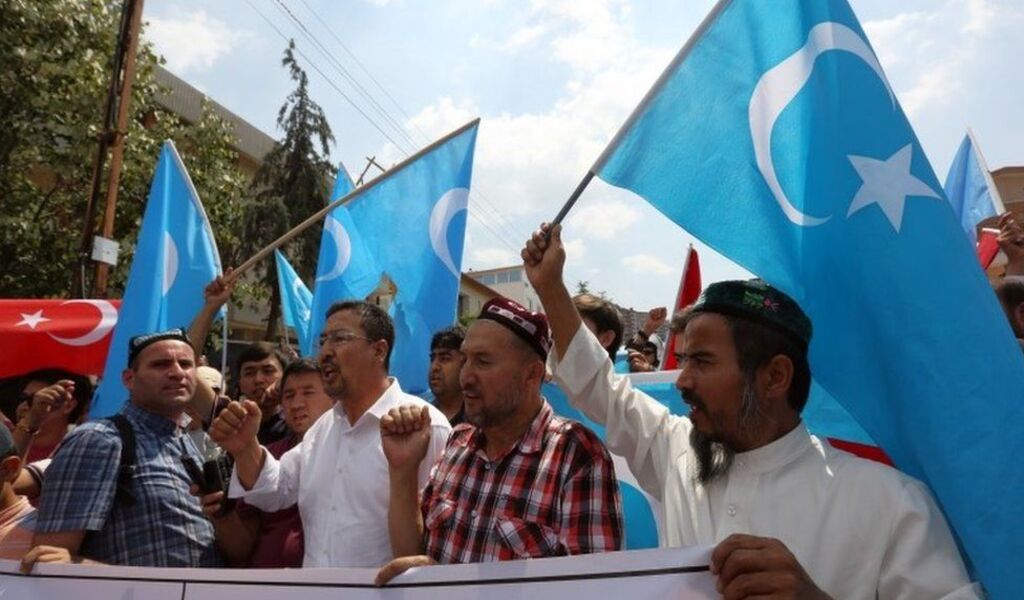
“The health effects of indefinite imprisonment in crowded, filthy immigration cells with inadequate healthcare and nourishment were not considered.”
The Bangkok IDC’s spokesman was reachable by phone, but the BBC was unsuccessful. Police in Thailand declined to respond through a spokesperson.
According to the UNHCR, no contact with the inmates has been permitted. The Thai National Human Rights Commission has requested authorization to visit the Uyghurs in the IDC for several months.
A date was finally assigned this month, and it will be submitted this week.
The Bangkok IDC’s conditions have not improved much despite the Thai government’s pledge to collaborate with the UN to better the screening and care of the tens of thousands of refugees and asylum seekers nationwide.
If Thailand were ready to release the Uyghurs, activists believe they would likely receive resettlement in a third nation. But a reliable Thai source claims that the administration is too worried about upsetting China.
Aziz Abdullah was buried in a cemetery at a mosque adjacent to the Chao Phraya River in the heart of Bangkok when his body was eventually released to members of the Thai Muslim community.
RELATED CTN NEWS:
South Korean Court Recognizes Rights Of Same-Sex Couples






























